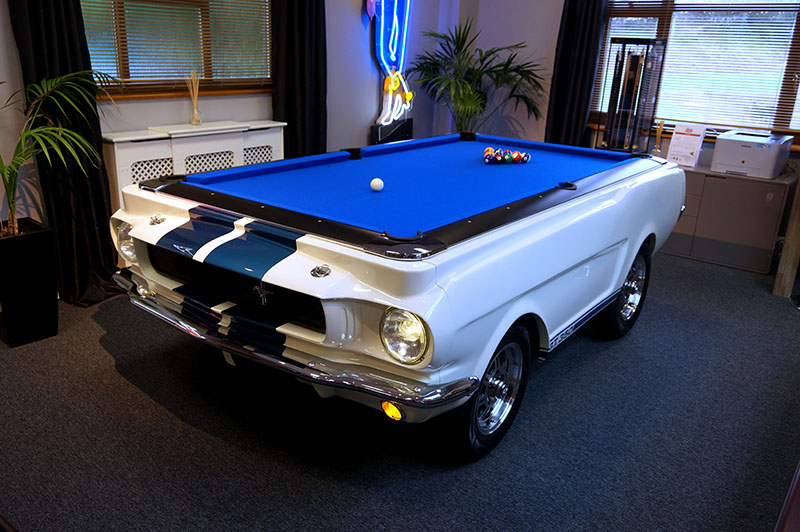Introduction
In recent years, the world of collectables has expanded beyond traditional items such as rare coins, vintage cars, or fine art. As investors and enthusiasts seek unique assets with both aesthetic and financial value, pool tables have emerged as intriguing contenders in the collectable market. Once viewed primarily as recreational fixtures, high-end, antique, or bespoke pool tables are now being recognised for their potential as investment pieces. This article explores the growing trend of pool tables as collectables in the UK, examining their historical significance, market dynamics, craftsmanship, and investment potential.
The Historical Allure of Pool Tables
Pool tables have a rich history dating back to the 15th century, evolving from simple lawn games to sophisticated indoor fixtures synonymous with luxury and leisure. Early billiard tables, often found in the homes of British and European nobility, were crafted with exquisite materials like mahogany, rosewood, and inlaid ivory, reflecting the opulence of their time. Antique pool tables from the 19th and early 20th centuries, particularly those made by renowned manufacturers like Burroughs and Watts or Thurston & Co., are now highly sought after in the UK for their craftsmanship and historical significance.
These tables are not merely functional; they are artefacts of cultural history. For example, a Thurston billiard table from the late 1800s, with its intricate carvings and robust construction, represents an era when billiards was a pastime of the British elite. Such pieces often carry stories of their original owners—perhaps a wealthy industrialist or a prestigious gentlemen’s club in London—adding to their allure as collectables.
Why Pool Tables Are Gaining Traction as Collectables
Several factors contribute to the rising interest in pool tables as investment pieces in the UK:
1. Craftsmanship and Rarity
Modern high-end pool tables and antique models are often handcrafted with premium materials such as exotic woods, slate, leather, and even precious metals. Limited-edition tables, like those produced by brands such as Peradon or BCE, feature unique designs or collaborations with artisans, making them one-of-a-kind. Antique tables, particularly those by British manufacturers like Thurston, are valued for their rarity, as many were produced in limited quantities or have not survived the passage of time.
For instance, a bespoke pool table designed by a contemporary British craftsman or a restored 19th-century Thurston table can command prices ranging from £8,000 to over £80,000, depending on condition, provenance, and design. The scarcity of these pieces drives their value, much like rare furniture or vintage watches.
2. Cultural and Nostalgic Appeal
Pool tables evoke a sense of nostalgia, conjuring images of classic British pubs, Victorian billiard rooms, or cinematic moments (think The Hustler or The Color of Money). This cultural resonance makes them appealing to collectors who value items with a story. In the UK, billiards and snooker have deep roots, with the latter being a national pastime, further enhancing the desirability of pool tables as collectables.
3. Customisation and Exclusivity
The rise of bespoke pool tables has fuelled their collectable status. Manufacturers now offer fully customisable tables, allowing buyers to choose everything from the wood finish to the baize colour and even incorporate personal monograms or logos. Some companies collaborate with luxury British brands or designers to create limited-edition models, which are marketed as both functional gaming tables and statement pieces for high-end homes or offices. These exclusive designs often appreciate in value due to their uniqueness.
4. Investment Diversification
As traditional investments like stocks and property face volatility, UK collectors are turning to alternative assets. Pool tables, particularly those with historical or artistic value, offer a tangible investment that can appreciate over time while also serving as a functional or decorative piece. Unlike stocks, which can fluctuate unpredictably, a well-maintained pool table can retain or increase its value, especially if it is a rare or bespoke piece.
The Market for Collectable Pool Tables
The market for collectable pool tables in the UK is niche but growing steadily. Auction houses, such as Bonhams or Sotheby’s in London, occasionally feature antique billiard tables, while online platforms like eBay and specialty retailers like Liberty Games or Home Leisure Direct cater to collectors. Prices vary widely based on factors such as:
- Age and Provenance: Antique tables with documented histories or connections to notable British figures or institutions command premium prices.
- Condition: Restored tables in pristine condition are more valuable than those requiring significant repairs.
- Brand: Established manufacturers like Thurston, Peradon, or Riley are synonymous with quality and prestige in the UK.
- Design: Tables with unique features, such as hand-carved details, inlaid materials, or modern technological integrations (e.g., LED lighting or touchscreen scoreboards), are particularly desirable.
Recent sales data illustrates the potential. In 2024, a restored 1890s Thurston billiard table sold at auction in London for £65,000, while a bespoke table by a contemporary British designer fetched £95,000 at a private sale. These figures suggest that high-quality pool tables can rival other collectables in terms of investment returns.
Factors to Consider When Investing in Pool Tables
While pool tables hold promise as collectables, UK investors should approach the market with caution and consider the following:
1. Condition and Maintenance
Pool tables, especially antiques, require careful maintenance to preserve their value. Slate surfaces must be kept level, baize must be replaced periodically, and wooden components may need refinishing. Neglect can significantly diminish a table’s value, so buyers should factor in ongoing upkeep costs, which can range from £200 to £1,000 annually depending on usage and condition.
2. Authenticity and Documentation
Provenance is critical in the collectable market. Buyers should seek tables with verified histories, such as original sales receipts, manufacturer certificates, or records of previous owners. For antique tables, professional appraisals from UK-based experts can confirm authenticity and value.
3. Market Liquidity
Unlike stocks or gold, pool tables are not highly liquid assets. Selling a collectable table may take time, as the buyer pool is limited to enthusiasts, collectors, or interior designers. Investors should be prepared to hold their tables for the long term.
4. Space and Practicality
Pool tables are large, heavy, and require significant space, which can limit their appeal in smaller British homes. A full-size snooker table, for example, requires a room at least 22ft x 16ft. Buyers must ensure they have the space to display and use the table, as well as the means to transport and install it properly, which can cost £500–£2,000 for professional services.
5. Trends and Demand
The collectable market is influenced by trends. While pool tables are currently gaining traction, shifts in consumer preferences could affect future demand. Investors should research market trends and focus on timeless or iconic pieces likely to retain value, such as those by historic British manufacturers.
The Future of Pool Tables as Collectables
The future looks promising for pool tables as investment pieces in the UK. As luxury home design trends emphasise statement pieces and experiential spaces, pool tables are increasingly featured in high-end interiors, from Mayfair penthouses to countryside estates. Their dual role as functional gaming equipment and artistic centrepieces makes them versatile additions to modern homes, offices, or private clubs.
Moreover, the enduring popularity of snooker and pool in the UK—evidenced by events like the World Snooker Championship and local leagues—supports demand for high-quality tables. The integration of technology, such as smart sensors or augmented reality features, may further enhance the appeal of modern tables, attracting younger collectors.
Conclusion
Pool tables are carving out a unique niche in the UK’s collectable market, blending craftsmanship, history, and cultural significance. While they may not yet rival the liquidity or mainstream appeal of fine art or vintage cars, their potential as investment pieces is undeniable. For collectors and investors willing to navigate the challenges of maintenance, authenticity, and market liquidity, pool tables offer a compelling opportunity to own a piece of British history that can appreciate in value while adding elegance and enjoyment to their spaces.
As with any collectable, success in this market requires research, patience, and a keen eye for quality. Whether it’s a meticulously restored antique Thurston or a bespoke modern design, pool tables are proving to be more than just game tables—they are the new collectable for those seeking beauty, rarity, and a touch of British nostalgia.

